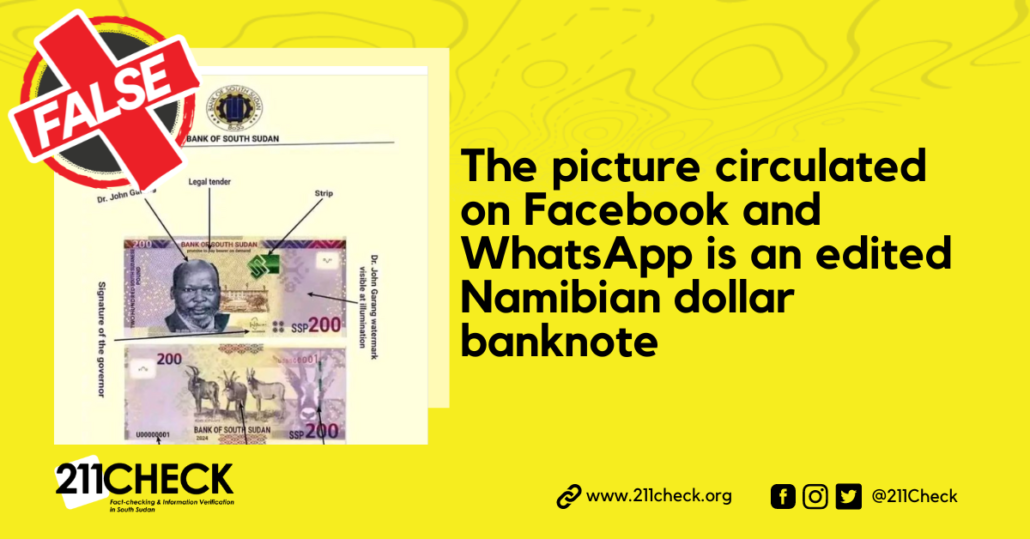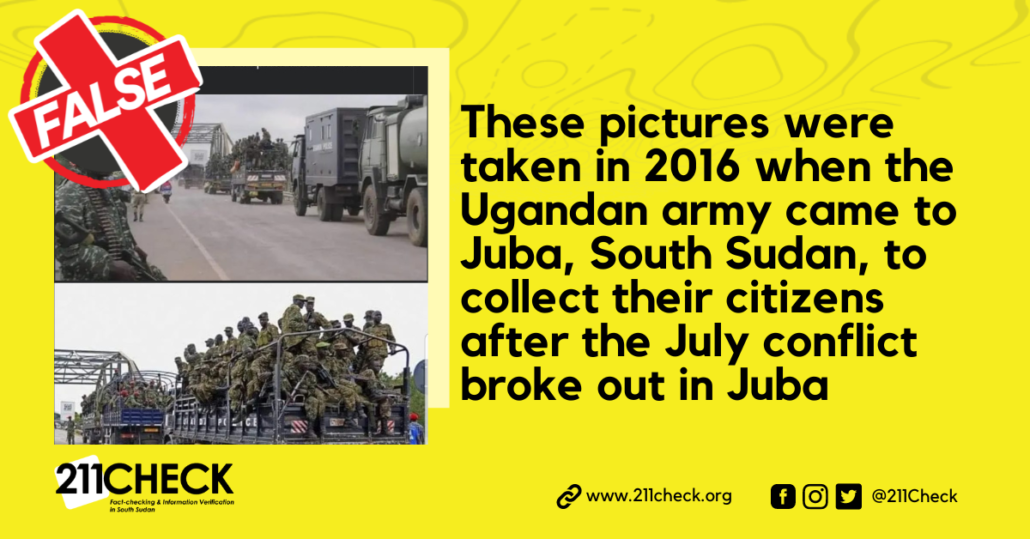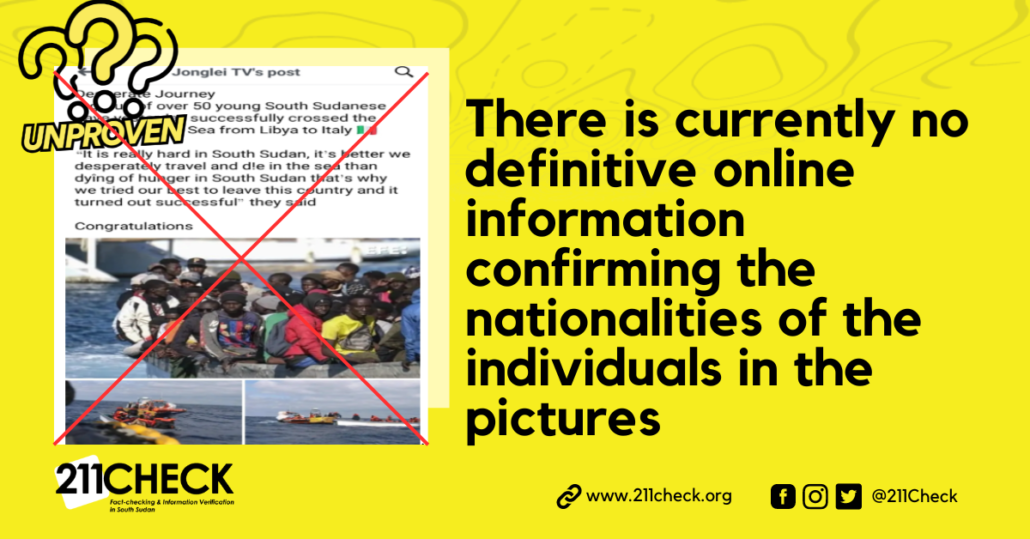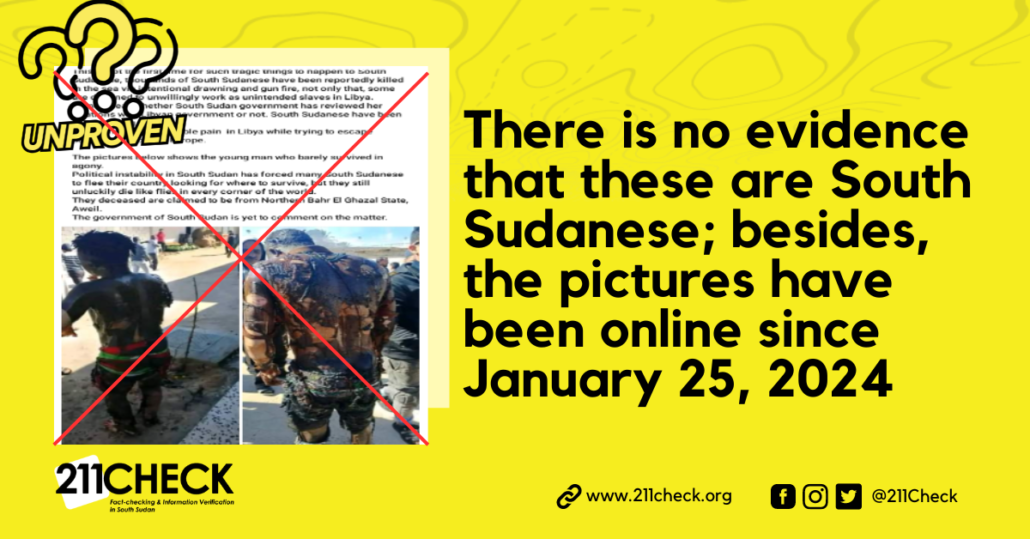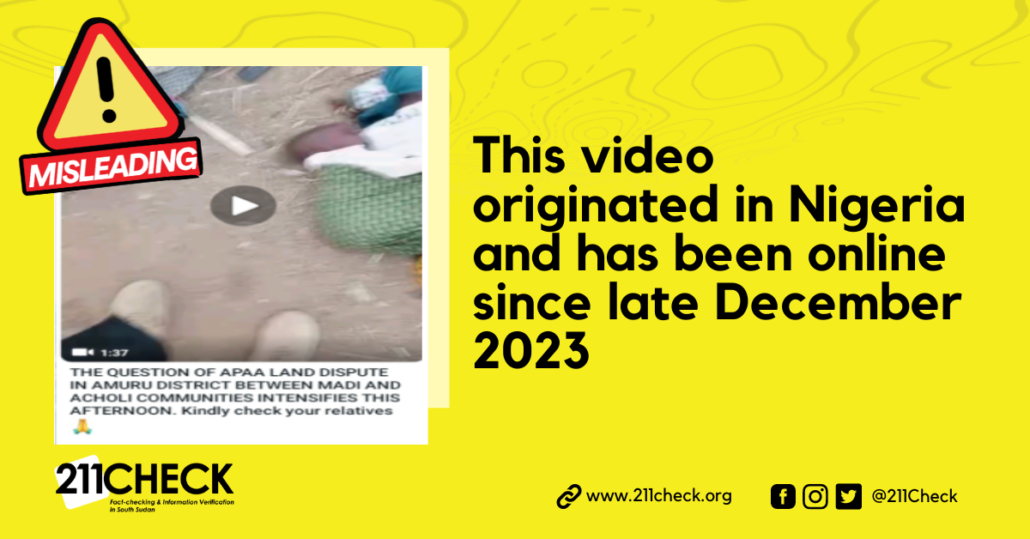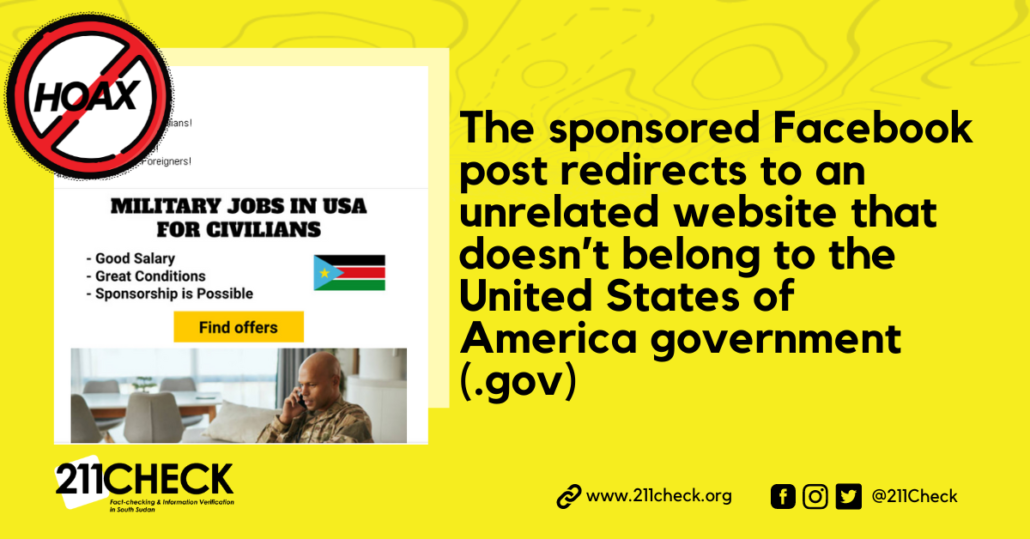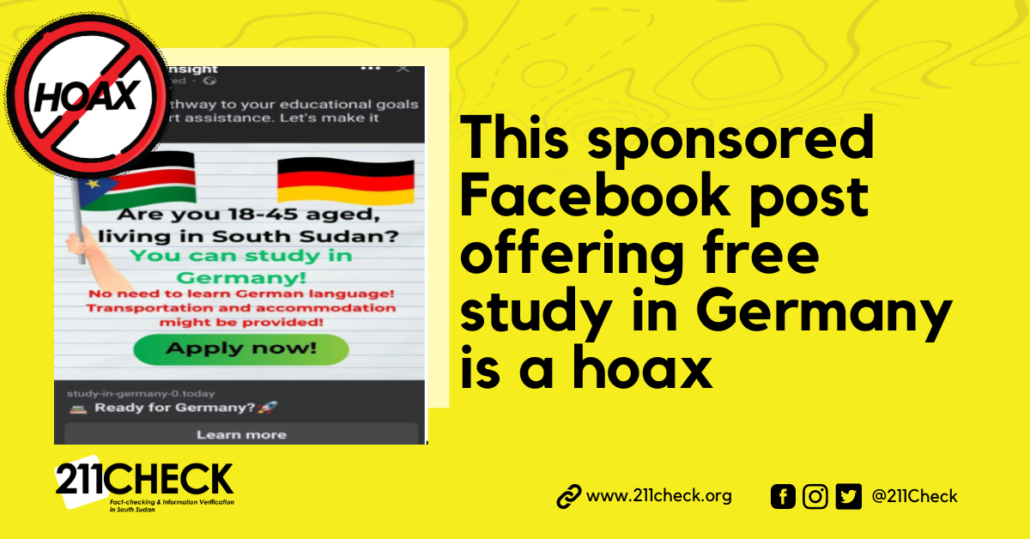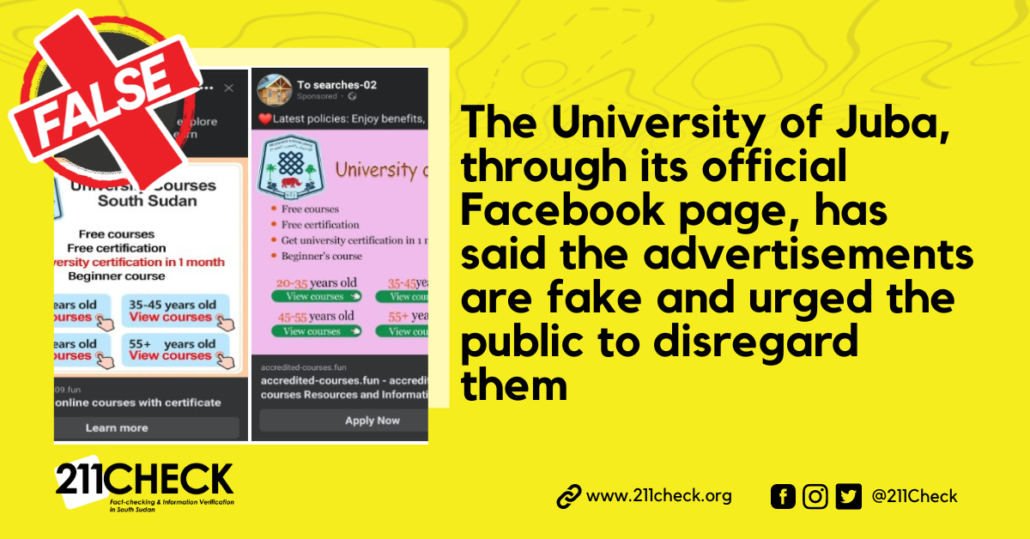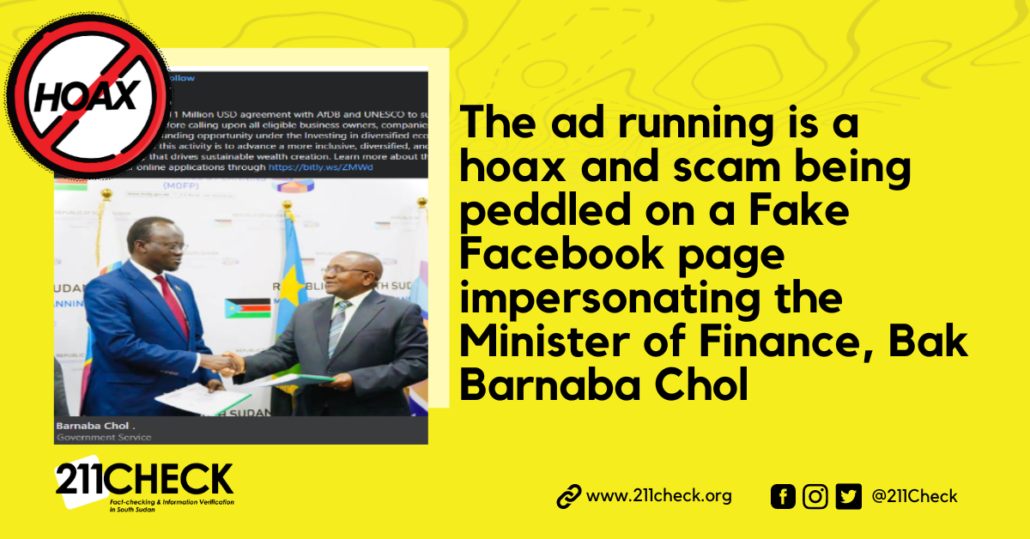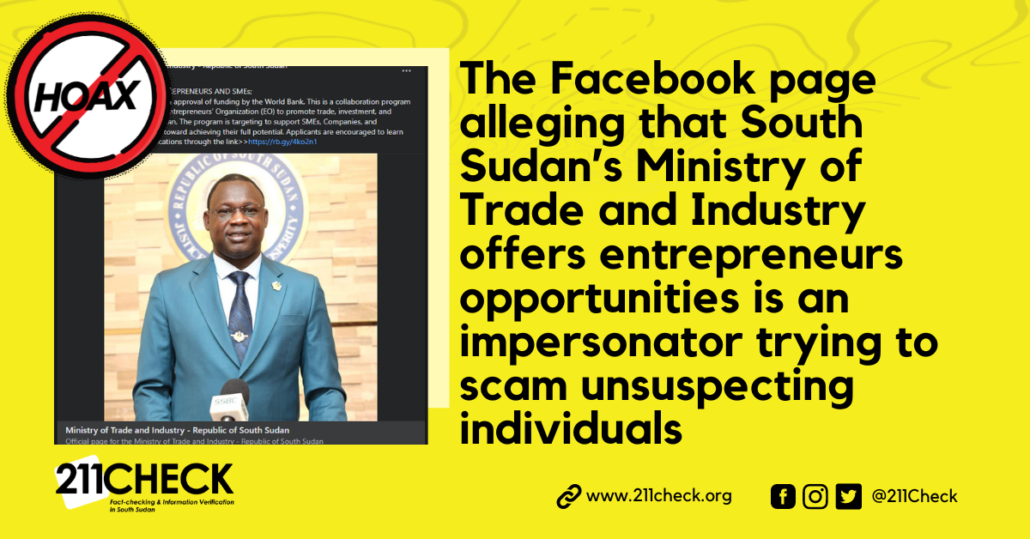Fact-check: Bank of South Sudan has not introduced a new currency note in 2024
The picture circulated on Facebook and WhatsApp is an edited Namibian dollar banknote.
Writer: Jibi Moses
The specimen of a banknote shared on Facebook and several WhatsApp groups claiming to be a new South Sudanese Pound two hundred (SSP 200) is false.
The note, mainly covered in purple, was shared on a purported Bank of South Sudan headed paper. Although there was no description or any other explanation, The note’s main features are Dr.John Garang’s picture, Antelopes, the strips, the governor’s signature, and the serial number, among other features.
“New Currency. Bank of South Sudan has released a 200 SSP note,” Duany News Network shared on Facebook. Some Facebook posts include one, two, three, and four.
Screenshot of the Edited Banknote, purported to be a new South Sudanese SSP 200 note
Claim Verification:
A keyword internet search for “Did the Bank of South Sudan release a 200 banknote?” did not return any positive results. This search showed that the latest currency to be released in South Sudan is the South Sudanese Pounds one thousand note (SSP 1000) on Tuesday, February 9, 2021.
211 Check did a reverse image search, and the results showed that this is a Namibian dollar 200 note. Both Yandex and Baidu have pictures of the same 200 Namibian dollar banknote.
Banknote World Educational in 2015 published the note with the caption, “Namibia 200 Namibia Dollars Banknote, 2015, P-15b.” In this publication, they also gave the exchange rate to the US dollar, which stood at $60 then.
Apart from the picture of Captain Hendrik Witbooi’s face, which was portrayed on the obverse of all Namibian dollar banknotes until March 20, 2012, it is still on all N$50, N$100, and N$200 notes and the Bank of Namibia. The rest of the features are the same as the ones in the picture, which claims to be for the South Sudan 200 New Bank Note.
A screenshot of the N$ 200 banknote as published on the Banknote World website
Namibian Dollar Bank Notes
According to the Bank of Namibia, there are six denominations (values) of Bank of Namibia notes in circulation: N$10, N$20, N$30, N$50, N$100, and N$200.
The Bank of Namibia officially introduced and issued the first Namibian dollar designs for the 10, 50, and 100 Namibian dollar banknote denominations on September 15, 1993. The 20 and 200 Namibian dollar banknote denominations were introduced in 1996. Although the 20 and 200 Namibia dollar banknotes maintained the same design as the first 10, 50, and 100 Namibia dollar banknotes, they did contain some additional trademarked security features. The 10, 50, and 100 Namibian dollar banknotes were subsequently upgraded to include these features.
South Sudanese Pounds BankNotes
The South Sudanese pound is the currency of the Republic of South Sudan. It is subdivided into 100 piasters. The Southern Sudan Legislative Assembly approved it before secession on July 9, 2011 from Sudan. It was introduced on July 18, 2011, and replaced the Sudanese pound.
Coins and Banknotes: 25 pounds, 25 piasters, 5 piasters, 1 pound, 10 piasters
Banknotes: SSP 1, SSP 5, SSP 10, SSP 20, SSP 25, SSP 50, SSP 100, SSP 500, and SSP 1,000. The latest to be introduced is the SSP 1,000 note on February 9, 2021.
Screenshot of the new banknote published on the Bank of South Sudan website on February 9, 2021
Conclusion:
211 Check has found the claim that the image circulating on Facebook and WhatsApp that the Bank of South Sudan has introduced a new currency, the SSP 200 note, is false; the picture is an edited Namibian dollar N$ 200 banknote.
To ensure accuracy and transparency, we at 211 Check welcome corrections from our readers. If you spot an error in this article, please request a correction using this form. Our team will review your request and make the necessary corrections immediately, if any.
It’s vital to fight misinformation and disinformation in the media by avoiding fake news. Don’t share content you’re uncertain about. False information can harm and mislead people, risking their lives—Fact-check before sharing. For more details, visit https://211check.org/ or message us on WhatsApp at +211 921 350 435. #FactsMatter

